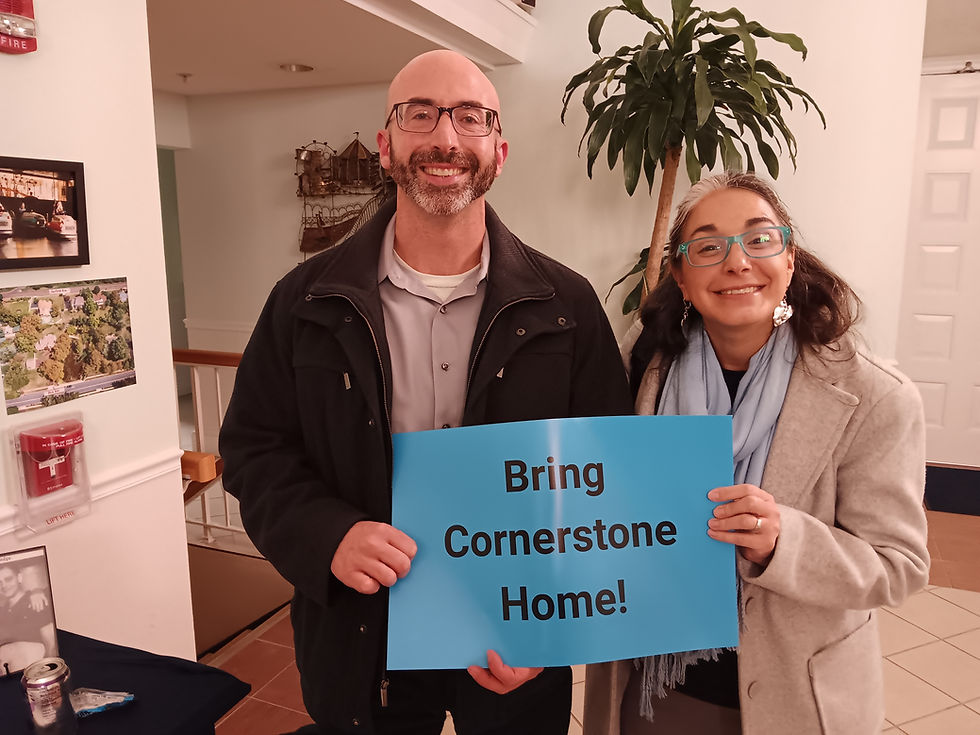Speak Up at Local Meetings to Combat NIMBYism
- Michael Hays
- May 20, 2023
- 2 min read
Updated: Jun 9, 2023
Based on my experiences in local government and politics, it is easier to be against something than for something. If you have attended a school board meeting over the past five years, you know exactly what I am talking about. Righteous anger, “outrage,” and dissent grab news headlines and can often hijack narratives – all while torpedoing otherwise commonsense proposals.
This can change with your help. We can change "Not In My Backyard" (NIMBY) to "Yes in My Backyard."
In our collective fight for better housing policies and affordable options for all, this is central to changing the narrative and notching victories. Across Montgomery County, public meetings and hearings are taking place where elected (and sometimes appointed) officials are making decisions about housing that impact the unsheltered and rent-burdened. For example:
Last week in Pottstown, the Zoning Hearing Board rejected a variance that would have allowed a temporary warming center operated by Beacon of Hope Church to continue during the winter months. This is a major problem because a permanent shelter could take one or two years to build. An appeal hearing slated for June 15 has been cancelled. Stay tuned for updates.
In Upper Gwynedd Township, meetings have become contentious over a proposal to build 60 apartments near the Pennbrook train station. The development proposed by the Walters Group, Pennbrook Parkway, would utilize Low Income Housing Tax Credits (LIHTC). This fact seems to have supercharged the opposition, prompting accusations of attempts to “urbanize” the township. Kim Krauter, of the Walters Group, points out that under their plan leases would include four apartments at the lowest end of the income scale, nine at market rate, and the rest (about 47) between 50 to 60 percent of the area’s average median income (AMI).
The Upper Gwynedd Township Planning Commission is holding a 7:30 p.m. hearing on Wednesday, June 14, about Pennbrook Parkway. You do not need to be a resident of the township to speak.
From Limerick to Lower Merion, development proposals come before elected officials, sometimes with variances and other requested concessions (or giveaways). Too often, these are granted without any discussion of setting aside a percentage of units at below market rates. This is called inclusionary zoning. You can make this a point of discussion wherever you live. As Bill McKibbben recently wrote, we don’t live only in our backyard. We also share one.
Please reach out to us at montco30percent@gmail.com if you want to discuss a proposal in your community.

.png)



Comments